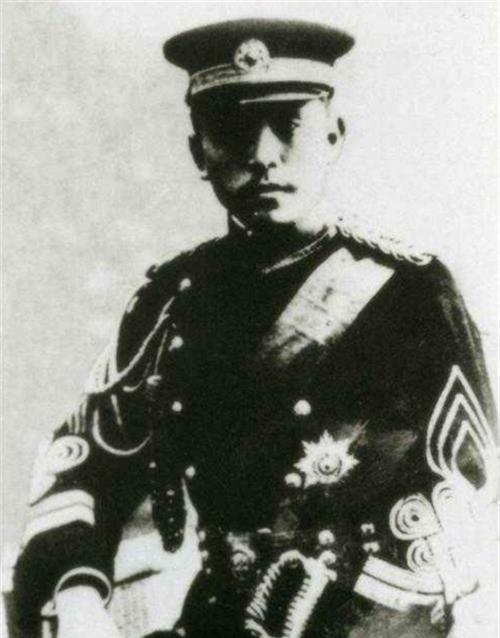The Qing Dynasty was the last feudal dynasty in China's history, because the Qing Dynasty pursued "self-isolation", perfectly missed the Industrial Revolution in the West, resulting in the suffering of the late Qing Dynasty, but with the introduction of Western culture, advanced Western ideas also shaped a group of revolutionaries who walked in the forefront of the times.

They deeply realized that only revolution can save the country from fire and water, although the Qing Dynasty officials also set off a foreign affairs movement, but still could not stop the torrent of the times, but one person tried to stop this monstrous torrent, and he had already calculated the situation of the demise of the Qing Dynasty.
This person is Aisin Kyora Ryobi, a Manchurian yellow flag man, born in 1877, he is the grandson of the Manchu Qing University scholar Iribu, after the First Opium War, the university scholar Iribu realized that it was not feasible to stick to the country, so he sent Ryobi to Japan to study.
Under the influence of his family, Liangbi studied hard, successively admitted to the Chengcheng School, the Japanese Army Non-Commissioned Officer School, in 1903 Liangbi graduated from the second phase of the infantry section with excellent results, the Japanese side wanted to keep Liangbi, put forward many favorable conditions, but Liangbi is a filial piety, he has not returned to China for a long time, naturally can not stay.
After returning to China, he served as the deputy envoy of the Department of Supplementary Military Studies, Yuan thought he was a good talent, so he was transferred to the eighth standard commander of the army, in 1906, in order to unify the military system, the Qing court returned the military power to the central government, established the War Department, and established the Army Accelerated Military Preparation School (Baoding Military Academy), and Liangbi was responsible for the affairs of the military school.
After the outbreak of the Xinhai Revolution, Liangbi established the Zongshe Party to oppose the revolution, and the Zongshe Party was all diehards in the Qing Dynasty royal family, headed by Liangbi, Puwei, and Tieliang, who opposed the abdication of the Qing Emperor and the revolution.
Liangbi's vigorous resistance naturally attracted the attention of the League, and Yuan had close contacts with the League, and Liangbi entered the assassination list, and Liangbi tried to "establish a constitutional revolution and try to save the overall situation", but he was still too young to be the governor of the Janissaries, and his position was replaced by Feng Guozhang.
Although the Janissaries were removed from their posts, there were still many contacts in the Janissaries, Tie Liang was even more long-standing, and his influence in the army was only second to that of Yuan, and the power of the Sectarian Socialist Party was still not small, and the Alliance would naturally be very worried, if Liangbi launched a mutiny, there would inevitably be a bloody war.
On January 26, 1912, after liangbi and Tie Liang and others had finished consulting, liangbi returned to the house of Guangming Temple Hutong in a carriage, and when he was at the door, Liangbi stepped off the carriage, and Peng Jiazhen saw the moment Liangbi got off the carriage and threw out the prepared bomb.
Because of the distance, Peng Jiazhen was injured by shrapnel flying on the back of the head, died on the spot, as for Liangbi was blown up in the left leg, he let the Japanese military doctor do amputation, treatment for two days, but because of the serious injury, or died, before dying, Liangbi sighed: Bomber, hero also. I die, the Great Qing dies!
On February 1, 1912, the Qing court with the deputy capital of the death of the case from the bestowed, liangbi more than ten days after his death, the Qing emperor abdicated, Liangbi has already seen through the Qing court, if he is alive, there is still a trace of room for redemption, he died, the sectarian party is not led, the Qing dynasty simply does not have the strength to fight a war.